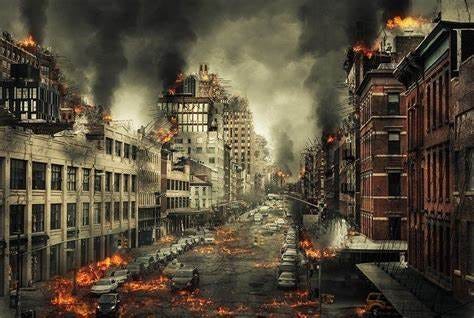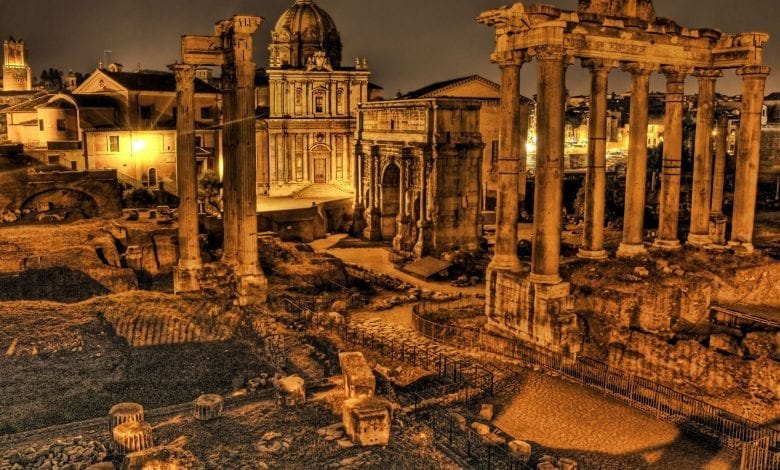Bye bye American Pie
Reasons Why Rome Fell
1. unwinnable wars with “ Barbarian” tribes. ...
2. over-reliance on slave labor. ...
3. inequality
4. unemployment
5. inflation
6. debasement of popular culture, violent spectacle
7. the rise of the Eastern Empire. ...
8. over-expansion and military overspending. ...
political corruption and political instability. ...
10. The arrival of the central and west Asian and east European peoples collectively called the “Huns” and the Barbarians encroachment on imperial provinces such as Britain
Reasons Why The US Will Fall
11. unwinnable wars with “ Barbarian” tribes: in the ME, Asia and Latin America, and now Russia
12. over reliance on slave labor. ...exploitation of workers at home and abroad
13. inequality
14. unemployment
15. inflation
16. debasement of popular culture, violent spectacle
17. the rise of the Eastern Empire….China and BRI
18. over-expansion and military overspending. ...
19. government corruption and political instability. ...
20. The arrival of the central and west Asian and east European peoples collectively called the “Huns” , now known as “Russians” and their taking of prospective imperial provinces such as Georgia, the Ukraine and Central Asian republics.
OK. But what about the differences between the Roman and American empires, especially modernization and technology.
Rome was not an industrial state. Nor was it global, although it dominated the Mediterranean and Western Europe. It was ruled by dynastic elites, an aristocracy. The US is a global empire with advanced communications which claims to be a democracy,
However, a closer examination renders these differences essentially meaningless..
All civilizations since the advent of the Neolithic have fallen within a few centuries, or, in the case of the Incas, even less. The reason lies in the growth of hierarchies that prevent adaptation and change and also in inequality that results in dynastic elites, effectively aristocracies. Although the US says it has government fo the people, by the people, t it is actually ruled by a few large corporations owned by just a very small elite, who for the most got their money and their opportunities from their parents.
Wherever the Romans went, they built roads; they also had a huge merchant fleet, tying the Empire together. All roads, as the saying goes, led to Rome. All ships went their too. Which is one reason the Romans were subject to frequent pandemics.
Today, all roads lead to Washington— metaphorically only— since the US doesn’t build roads or railroads much, preferring air travel to tie their empire together. Also very effective in spreading disease.
We might think that the Roman Empire was small compared to that of America. But to the Romans, it was global — because they ruled all of the world that mattered to them.The American Empire consists of the US, Canada, Europe and Australia, New Zealand, Japan and Korea, so it is much more extensive but certainly not the whole world. Most of the World doesn’t belong, which used to be fine because the Third World didn’t matter to Americans in the past, except for a cheap vacation or cheap labor. .
In the Roman case, the Barbarians learned a lot from the Romans and soon began to challenge the Empire. They were Rome’s Third World.
oday’s Babarians are Russian and Chinese and Indian.
The Romans fought the evolving, adaptive societies in Eastern Europe and the Middle East, just as the Americans are now doing with the Russians and Chinese. But the Romans lost. As will the Americans.
That’s because a civilization can be dynamic or static. Rome and America both lost momentum.
A major cause was cultural narcissism. Why change or try to evolve when you believe yourself superior?
Americans think themselves exceptional, even the poorest of them. The Romans believed tthis too — even the plebeians—despite their short, brutal lives.
When a civilization grows too large and powerful, it maintains social consistency largely through group-think, or propaganda, delusionary belief systems. In the American Empire, propaganda is based on media narratives — the best manufactured in Hollywood — stories told on TV, or now on he Internet. It is what Guy de Bord, calls the Society of the Spectacle. Think: the Super Bowl. Think Marvel movies.
In Rome, they first built theatres modeled on Greek theatre. But Greek drama was for the educated in small city-state cultures. Rome was ever so much bigger and its hoi polloi more numerous wanting excitement and vicarious pleasure to fill out their boring but as mentioned short and brutal lives.
The Romans invented bread and circuses. The Americans invented film and TV. So they have their own versions of the Coliseum with endless entertaining and often very bloody spectacles, reaffirming the values of the Empire, in the same way that gladiatorial combat and throwing Christians to the lions did for the Romans. The difference is really in the technology and the sophistication of presentation.
Rome split into pieces first. So you had an Eastern Empire and a Western Empire, with chunks falling off each. The US will also devolve. In the end, Rome was just a much diminished city who had to open it gates to the Vandals. Can we expect the same of Washington?
Following the wonderful Caitlin Johnstone’s policy, I relinguish all copyrights to this article which may be republished or quoted freely. Please support Caitlin. As for me, I need your support, too. I am just starting to build a readership so please retweet or comment. I welcome criticism and debate.





